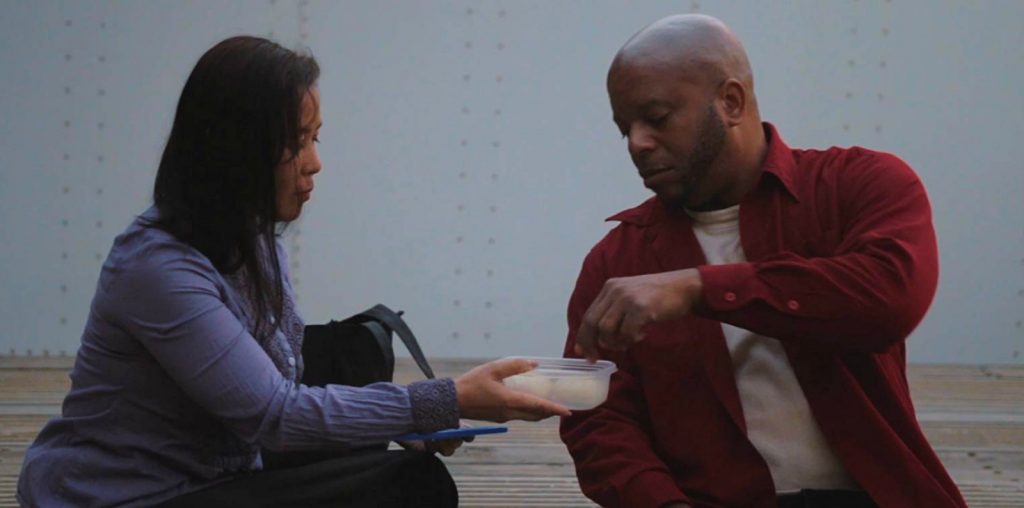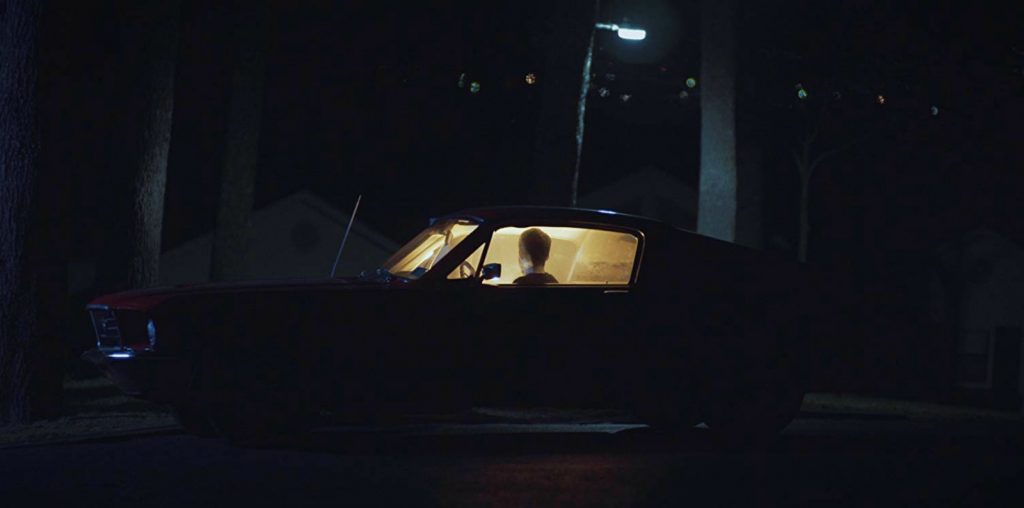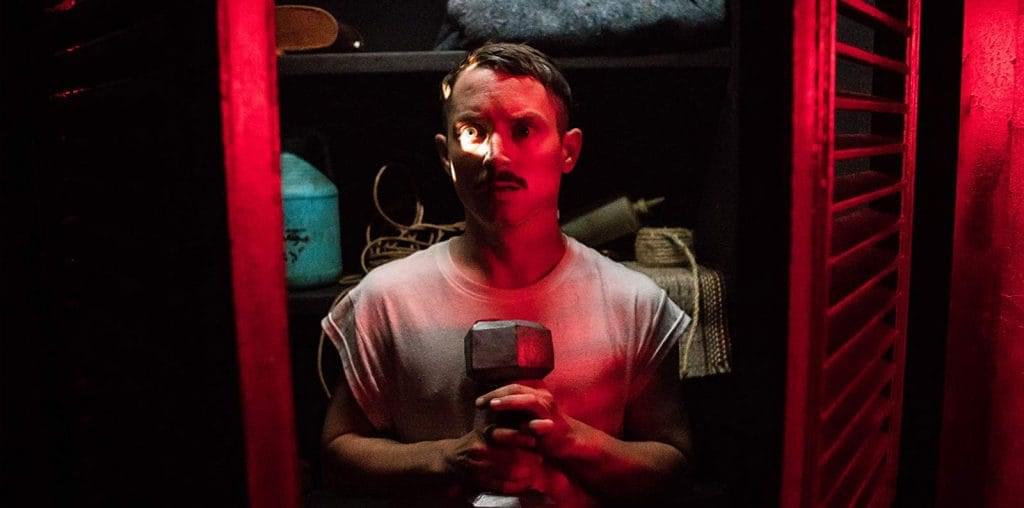
Max Pachman must love Jordan Peele. The latter’s influence is all over Pachman’s satirical horror Beneath Us. I mean, it’s in the title. His two hapless heroes even get trapped in a sub-level/basement of sorts, underneath demented, privileged white folks. The crucial difference is that Peele announced himself as a visionary auteur, skillfully balancing scathingly satirical sociopolitical commentary and psychological terror. Pachman’s not quite there yet. While decently assembled from a technical perspective, his film lacks Peele’s wit and sophistication. It is borderline-offensive in both its depiction of migrant workers and its underestimation of audiences’ intelligence.
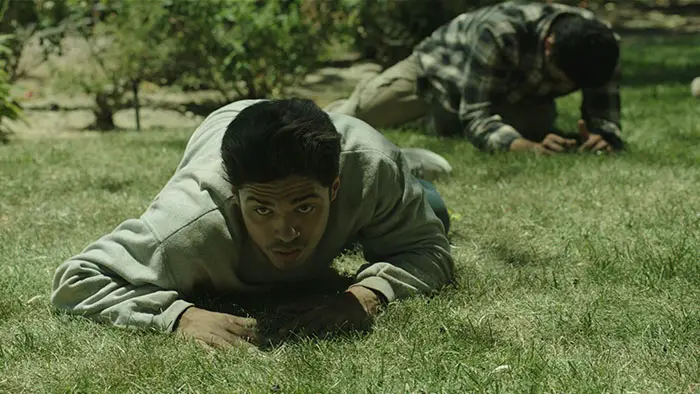
“…they spray the workers with a hose…refuse to treat one of the men’s severe wounds, threatening to turn them into the authorities if they stop working.”
Memo (Josue Aguirre) is new to the world of migrant workers. His brother Alejandro (Rigo Sanchez) is his mentor. When the ostentatiously affluent Liz Rhodes (Lynn Collins) comes riding into the parking lot, a fight between a group of workers ensues, with Alejandro taking the lead. “How much do your contractors charge you?” he asks Liz while helping her load the trunk. Next thing they know, Alejandro and Memo, along with the volatile Hector (Roberto “Sanz” Sanchez) and the lanky Tonio (Thomas Chavira), are hired.
The men’s duties remain somewhat vague. They begin working on a shed in the back of Liz’s plantation-like mansion, which is surrounded by an electric fence. Liz’s nuclear husband, Ben (James Tupper), enters the picture, murmuring, “We should send them home.” They don’t. Instead, they spray the workers with a hose when the men fall asleep and refuse to treat one of the men’s severe wounds, threatening to turn them into the authorities if they stop working. When the Rhodes’ dementia peaks and they pull out their big guns (literally), Memo and Alejandro have to figure out a way to escape.
“This isn’t my home,” Liz says. “This is my graveyard. And I’m gonna bury you.” Beneath Us primarily consists of a series of humiliations and torture inflicted upon the migrant workers by the Rhodes couple. For example, Liz asks them to take off their clothes and dig what certainly appears to be their own graves. If Pachman intended to reiterate the difficult plight of migrant workers, our disregard and abuse of them, then point made, I guess. Yet for a film titled Beneath Us, it certainly never digs deep under the surface.
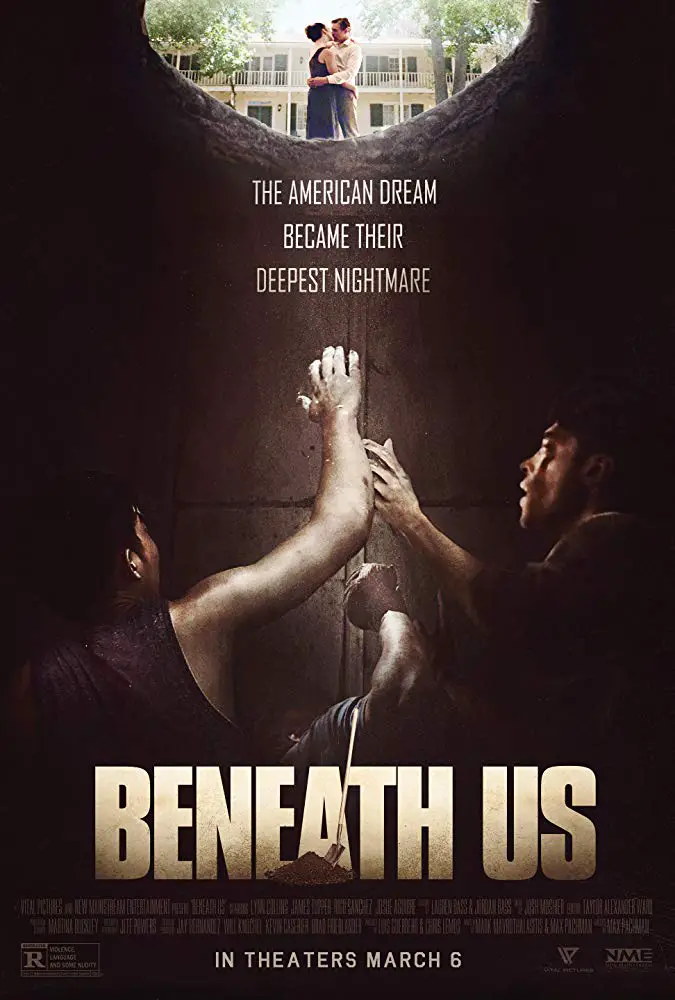
"…their relationship is moving and real"
